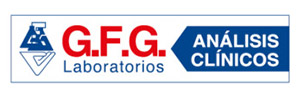CONTACT
We will reply as soon as possible.
Enevia Health, LLC
30 N Gould Ste N, Sheridan, WY 82801, USA
The GI-MAP (Microbial Assay Plus) is unique in the field of comprehensive stool testing. It relies exclusively on quantitative polymerase chain reaction (qPCR) technology to detect parasites, bacteria, fungi and more, targeting the specific DNA of the organisms tested.
Optimal health: it all starts with GI-MAP
Research overwhelmingly indicates that gut health impacts overall health. The gut microbiome, in particular, plays a critical role in mediating the effects of diet and other factors on health, including digestive, immune, metabolic, and neuroendocrine functions. Assessing gastrointestinal health with the right tools can help professionals get to the root cause of chronic diseases.
Why is quantification using qPCR technology so important?
Unlike other comprehensive stool tests on the market, GI-MAP can provide professionals with truly quantitative results. qPCR offers a much more accurate way to detect and quantify clinically relevant organisms than standard methods based on PCR, culture, microscopy or DNA sequencing. Accurately assessing how much of an organism's DNA is present in a patient's stool sample is essential to help doctors determine clinical effect. importance of pathogenic organisms and dysbiosis patterns.
Reliability, reproducibility and use of qPCR in clinical research
Although qPCR is becoming more common in in vitro diagnostics (IVD), we are the only laboratory in the United States exclusively using qPCR technology for advanced comprehensive stool testing. This technology is commonly used in clinical and academic research because it provides very precise quantification, as well as high levels of sensitivity and specificity. Standard PCR technology does not offer the same level of sensitivity or the ability to express precise numerical results.
The GI-MAP also provides consistently reproducible results. Reproducibility is of crucial importance for clinicians and patients who rely on the efficacy of GI-MAP. To achieve this, we perform rigorous quality control and have validated all molecular target quantification assays to meet or exceed FDA standards.
GI-MAP allows for personalized treatment plans and informative Retests
The accuracy and reliability of the GI-MAP allows clinicians to create personalized treatment protocols to address gut dysfunction based on which infections are urgent, which areas of the gut are already optimized, and which areas need to be addressed following an infection. >is resolved.
Additionally, quantification offers a remarkable ability to see how treatment modalities are working because a retest after treatment can show whether a parasite has resolved, whether dysbiosis has improved, and more.
Who should have the GI-MAP comprehensive stool analysis?
Almost all patients can benefit from a GI-MAP gut health assessment. Some patients seek to achieve optimal health, while others have suffered from chronic illnesses and have been frustrated without a diagnosis for years.
Some conditions that warrant testing are:
Can babies and children benefit from GI-MAP?
Yes. The GI-MAP is commonly used in infants and children and can provide information on conditions related to attention deficit hyperactivity disorder, autism, and digestive disorders.
What is reported in GI-MAP test results?
The Gastrointestinal Microbial Assay Plus (GI-MAP) is an innovative clinical tool that measures gastrointestinal microbiota DNA from a single stool sample using state-of-the-art quantitative polymerase chain reaction (qPCR) technology.
The GI-MAP was designed to detect microbes that may be disrupting the normal microbial balance or contributing to disease, as well as indicators of digestion, absorption, inflammation and immune function.
Page-by-page listing of microorganisms found in GI-MAP:
Page 1:
PATHOGENS
GI-MAP includes pathogens (bacterial, parasitic, and viral) commonly known to cause intestinal gastroenteritis. It is important to note that not all people who test positive for pathogens will develop symptoms. Many factors, including the health of the individual, the transient nature of some pathogens, and the presence and expression of virulence factors, contribute to an individual's symptoms.
Toxins are a type of virulence factor produced by certain pathogens. Since GI-MAP is a DNA-based test, the results reflect the levels of pathogenic strains carrying the toxin genes, not the levels of any toxins that may be produced.
BACTERIAL PATHOGENS
PARASITIC PATHOGENS
VIRAL PATHOGENS
Page 2:
Recent studies have shown that almost 50% of the world's population can harbor H. pylori. And, although many carriers are asymptomatic, H. pylori is known to play a causal role in ulcers, chronic gastritis, and stomach cancer.
Additionally, in the early phases of colonization, patients may experience hypochlorhydria followed by a change to hyperaciduria. Over time, they may colonize additional strains of H. pylori, including those with virulence factors and increased disease potential.
COMMENSAL BACTERIA/KEYSTONE
Millions of microorganisms inhabit the human intestine to form a complex ecosystem that plays an important role in human health. Commensal bacteria extract nutrients and energy from our diet, maintain intestinal barrier function, produce vitamins (biotin and vitamin K), and protect against colonization by potential pathogens.
COMMENSAL BACTERIA
BACTERIAL PHYLA
Page 3:
OPPORTUNISTIC MICROBES/OVERGROWTH
Many bacteria measured in the GI-MAP are considered opportunistic pathogens, as they only cause disease in some individuals, particularly those who are immunocompromised. Many people come into contact with opportunistic bacteria and do not experience symptoms. Most sources consider these microbes to be normal in stool. However, they can cause gastroenteritis and inflammation at high levels in vulnerable patients. Symptoms may include diarrhea, loose stools, abdominal pain, or even constipation.
Overgrowth and overcolonization by opportunistic bacteria can occur when commensal bacteria are affected by poor diet, antibiotic use, parasitic infection, or a weakened immune system. When there is intestinal permeability (see zonulin), these microbes could escape from the lumen of the intestine and infect extraintestinal sites.
OPPORTUNISTIC MICROBES/OVERGROWTH
COMMENSAL OVERGROWTH MICROBES
INFLAMMATORY AND AUTOIMMUNE BACTERIA
INFLAMMATORY AND AUTOIMMUNE COMMENSAL BACTERIA
FUNGI/Yeast
Fungal organisms are commonly found in the human digestive tract, but fungal overgrowth can cause illness in susceptible people. Fungal growth may be localized in the body. For example, Candida spp. it may be high in the large intestine but normal in the small intestine, and vice versa. In a patient with suspected fungal overgrowth, additional testing may be necessary to understand the full picture of fungal overgrowth. Urinary D-arabinitol or antibodies against Candida are sometimes used.
FUNGI/Yeast
VIRUS
VIRUS
Page 4:
PARASITES
A parasite is an organism that lives and feeds on a host organism at its expense. GI-MAP tests detect pathogenic parasites and protozoa (some of which are non-pathogenic) that occur most frequently in the gastrointestinal tract. Sources of exposure must be identified and eliminated to prevent reinfection.
PROTOZOA
WORMS
GUT HEALTH MARKERS
DIGESTION
GI MARKERS
IMMUNE RESPONSE
INFLAMMATION
ADDITIONAL TESTS
Page 5:
ANTIBIOTIC RESISTANCE GENES OF H. PYLORI
The GI-MAP includes results for the detection of antibiotic resistance genes in the microbiome. If there is an antibiotic resistance gene, then that class of antibiotics is designated POSITIVE for antibiotic resistance. A positive result for the presence of resistance genes for a given antibiotic indicates that the antibiotic is not an ideal choice for an antibiotic protocol.
Antibiotic resistance genes apply to all microorganisms found in the fecal sample. Since microbes can share DNA rapidly under stress, the presence of antibiotic resistance in any organism is reason enough to avoid that class of drug.
Phenotypes | helobacter
Page 6:
UNIVERSAL GENES OF RESISTANCE TO ANTIBIOTICS
The Universal Antibiotic Resistance (AR) Genes panel can be ordered as a complement to the GI-MAP or GI-Pathogens panel. It detects the presence of 55 genetic elements associated with resistance to 10 different classes of antibiotics.
This complementary AR Genes panel detects genes associated with resistance to the most commonly prescribed antibiotics for gastrointestinal infections. The mobile genetic elements of the panel can be found in a variety of different microbes. The presence of these genes in a bacterial population has been associated with moderate to high levels of antibiotic resistance in human gastrointestinal infections.
UNIVERSAL GENES OF RESISTANCE TO ANTIBIOTICS
Methodology
Quantitative PCR (qPCR) or real-time polymerase chain reaction (RT-PCR): gives you real quantitative values. It helps differentiate an organism's trace levels from frank elevations that indicate an active infection.
You have to contact the collaborating entity you want from your country:
Ecuador:
Doctor Oscar Castro
Peru:
GFG Laboratory
Uruguay:
Doctor Antonella Fanetti

PERU
GFG Laboratory
El Sauzal Passage. 105 Urb. Los Sauces
(Alt. block 8 av. 8 av. Villarán)
Surquillo, Lime
Peru
+51 989 692 828
Contact person:
Coordinator of Enevia Health in Peru Giovanna Bejerano
+51 983 514 369
Address of attention: Av. Benavides 2426 office 202 Miraflores. Lima 15048
Opening hours: Wednesdays 10:30 am to 12:30 pm.

URUGUAY
Doctor Antonella Fanetti De La Hoz
Office address:
Contact person:
Doctor Antonella Fanetti De La Hoz
Contact number: +598 99 728 557
Mail: antonellafanetti@gmail.com
Hours: 9:00 AM to 3:00 PM

ECUADOR
Doctor Oscar Castro
Contact person:
Enevia Health Coordinator in Ecuador: Doctor Oscar Castro
Mail: nutraautism@gmail.com
Schedule: 09:00 to 20:00
We will reply as soon as possible.
30 N Gould Ste N, Sheridan, WY 82801, USA
Our groups are the ideal platform to learn and share your scientific concerns about neurodevelopment issues
*Our purpose is informational only, it is not intended to be a substitute for medical advice, diagnosis or treatment.

This plan is exclusive for people who are responsible for or suffer from some neurodevelopmental pathology such as (TEA, ADD, ADHD, OCD, SLI and other learning disorders, as well as Rett syndrome, Tourette syndrome, PANS, PANDAS , LYME…
With this plan you can benefit from discounts on more than 100 laboratory tests, medical visits, supermarkets and therapies and you will have access to all the tests with the BIGGEST possible discount.
Enevia Health, following its commitment to health and well-being, has created another membership designed for all those people who need these tests and want to benefit from the facilities offered by Enevia.
Subscribe to our HEALTH PLAN and start enjoying the advantages we offer you.
In this modality you will NOT pay annual membership, you will be able to buy on our website but you will not be able to benefit from the discounts that those people subscribed to one of our plans have.
We are working on our website. For any queries, you can contact our customer service team at atencionalcliente@eneviahealth.com